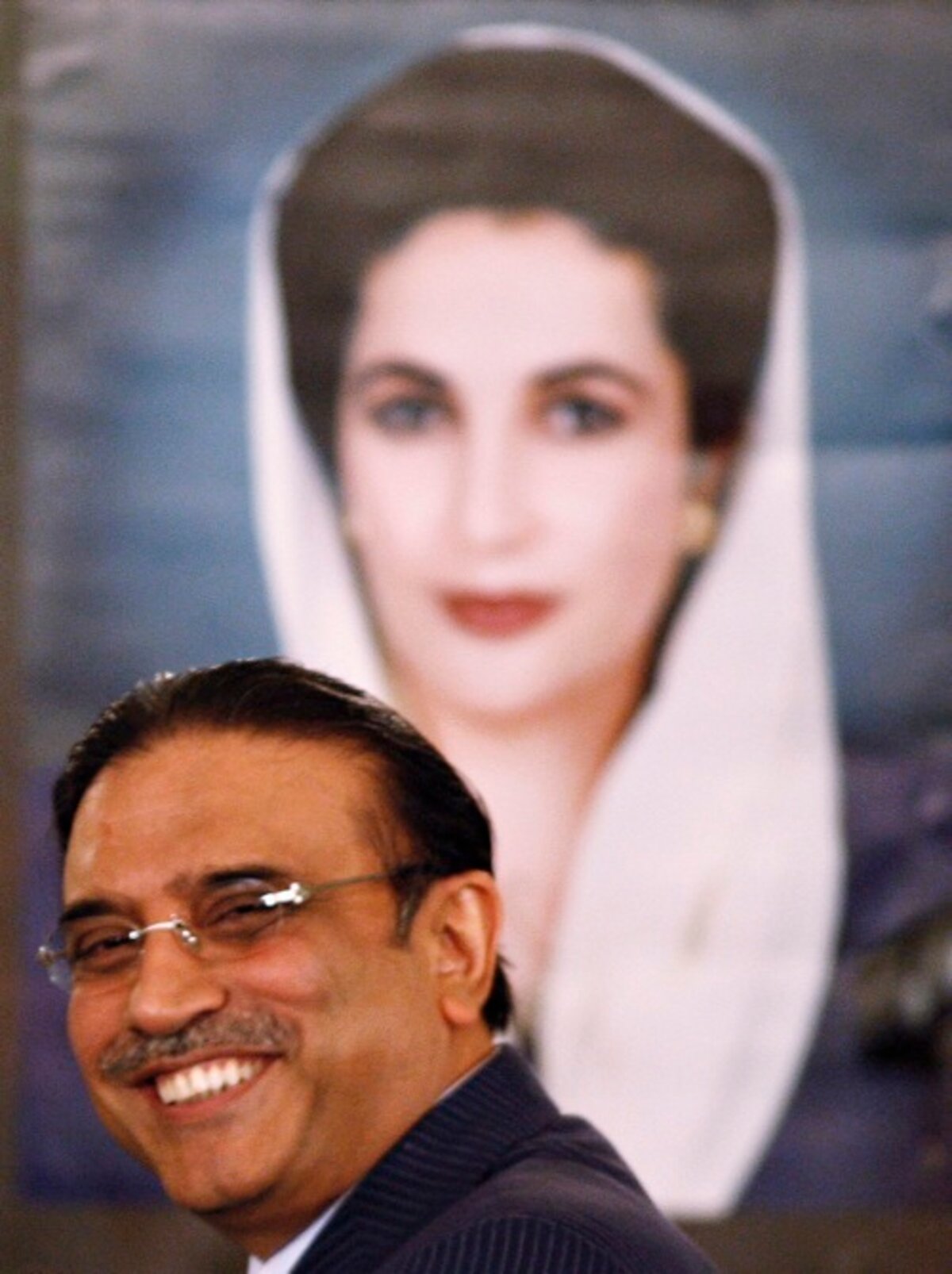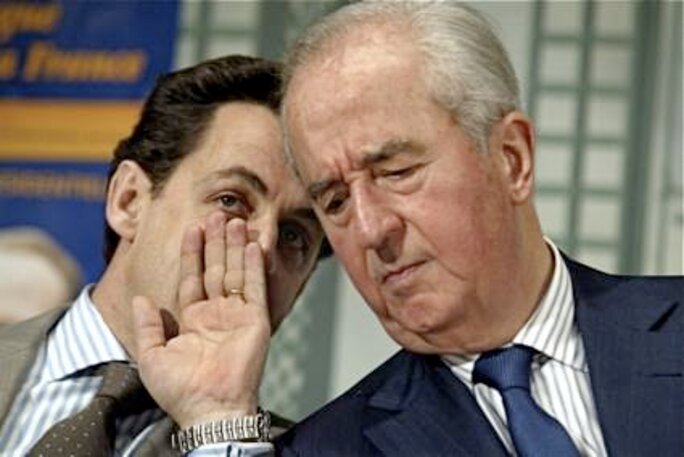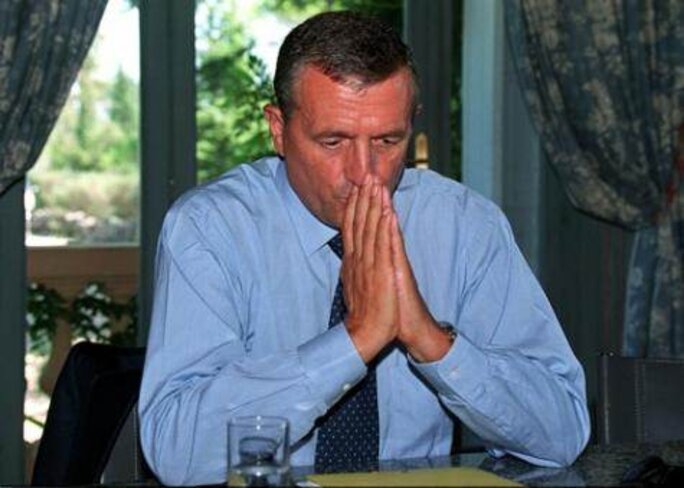French secret services were informed in 1999 that current Pakistani President Asif Ali Zardari received 70 million dollars in bribes from France in the 1990s for the sale of three French submarines to Pakistan, Mediapart can reveal.
The information iscontained in secret documents from the French foreign intelligence services, recently unclassified, and which are now in the possession of Paris-based investigating magistrate Renaud Van Ruymbeke, and which Mediapart has gained access to.

Enlargement : Illustration 1

The submarine sale, and the payment of massive bribes to ensure it, are at the core of what has become known as the ‘Karachi affair', currently the subject of two French judicial investigations with potential far-reaching ramifications within France, and notablyfor President Nicolas Sarkozy.
The massive bribe paymentsmade to secure the 1994 sale are suspected to have included kickbacks intended to illegally fund the presidential election campaign and party activities of Sarkozy's political mentor, former French prime minister Edouard Balladur, inpost at the time of the sale. Importantly, Sarkozy was Balladur's budget minister and election campaign director.
Much graver still, a French political squabble that halted completion of the payment of the bribes to Pakistani officials is suspected of having provoked a bomb attack in Karachi that killed 11 French engineers building the submarines, and which Mediapart's investigations suggest has been the subject of a cover-up.
The contents of the French secret service documents seen by Mediapart are the first to place a likely figure on the amount pocketed by Zardari, who was already identified as a major beneficiaryfrom the massive bung payments paid by France in the deal. They were made tosecure the contract for three Agosta-class submarines supplied by the French state-runnaval defence contractor DCN1. The French sale, worth the equivalent of more than 1 billion US dollars, succeeded against rival offers by Swedish and German contractors.
For many years, the Karachi blast was dismissed as an operation mounted by Al Qaeda operatives. That theory has now been dismissed by the two French magistrates in charge of investigating the circumstances surrounding the car-bomb attack against a minibus carrying the engineers to their workplacefrom the port city's Sheraton Hotel on May 8th, 2002.

Judge Renaud Van Ruymbeke last autumn launched an investigation into the financial aspect of the Agosta contract,and in particular whether part of the bribes, described at the time as ‘commissions', were illegally re-routed to fund political activities within France. Increasing evidence suggests that revenge for the cancellation of the commissions, halted by former French president Jacques Chirac shortly after successfully fighting offBalladur's 1995 presidential election bid, was the motive behind the May 2002 bomb attack in Karachi that left the 11 French DCN engineers dead. They were in the Pakistani port city to help build one of the three Agosta submarines.
Their murders are the subject of a second ongoing investigation, led by judge Marc Marc Trévidic. For the full background to the story click here.
Mediapart had already revealed earlier this year how, during a French police search in June 2010 of the Paris home of Amir Lodhi , one of the intermediaries involved in securing the contract for France, a copy was found of a report by the Pakistani anti-corruption investigation service, the Ehtesab Bureau, detailing bribe payments to Zardari and other officials.
The documents concerning Zardari revealed here are a series of reports on the Karachi deal written over several years by agents of the French foreign intelligence service, la Direction générale des services extérieurs, the DGSE. They are declassified secret files which were officially recorded as evidence for Van Ruymbeke's investigation by an officer of the French police National Financial Investigation Division (DNIF) on January 27th this year.
In a key note dated January15th 1999, the DGSE refers to a visit to Paris of a delegation of senior Ehtesab Bureau investigators. "The Ehtesab Bureau anti-corruption heads will provide, during their stay in Paris, the proof that 130 million dollars were paid in secret commissions for a contract amounting to 946 million dollars," it reads. "100 million [dollars] were paid, including70 [million] for Asif Ali Zardari."
The remaining 50 million dollars "were paid to navy officers and experts" the note continued. "The [Ehtesab Bureau] delegation will ask for judicial action and attack [sic] the price of the submarines and the insufficient quality."
-------------------------
1: La direction des constructions navales.
At the time of the contract negotiations in 1994, Zardari was a minister in the Pakistani government then led by his wife, prime minister Benazir Bhutto, who was assassinated in 2007. Importantly, Zardari was the key figure for all public contracts signed with foreign countries, which earned him the unflattering nickname in his own country of "Mister 10 percent".

A DGSE note dated May 5th 1994, nearly four months before the Agosta submarine sale was officially signed, reported: "Regarding under-the-table payments, Monsieur Zardari was in contact with French and Swedish intermediaries, the envisaged commissions oscillating between 8 and 12 million dollars." That projection would prove to be well below the amount finally paid.
In another note dated June 21st 1994 and accessed by Mediapart, the DGSE agents focused on the role of Amir Lodhi, the principal Pakistani intermediary used by France to corrupt key political figures via the SOFMA, a state-run company dedicated to promoting French military sales abroad1. The payment of bribes to foreign officials was common practice employed by all the major arms-producing nations until it was outlawed under a 1997 OECD Anti-Bribery Convention, which France implemented in 2000.
Lodhi, a seasoned intermediary, was cited in the DGSE documents as being involved in the fraudulent collapse, in 1991, of the Bank of Credit and Commerce International (BCCI). The brother of a former Pakistani ambassadress, Maleeha Lodhi, he was also personally close to Zardari and Bhutto and a favoured go-between for their centre-left Pakistan People's Party (PPP).
In a report dated May 12th 1997, written after the PPP's election defeat in legislative elections in February that year and which saw Bhutto's successor, Nawaz Sharif, launch a vast anti-corruption campaign, the DGSE observed: "Bribes were indeed paid [to] Amir Lodhi, intermediary for the Bhutto-Zardari clan. He is said to have property assets in Washington, Paris, Cannes and London." On October 7th 1998, the Pakistani authorities delivered an international warrant for Lodhi's arrest in connection with the Agosta submarine sale scam.
On June 26th 1998, a DGSE report titled "The payment of secret commissions in arms contracts" noted that the Agosta deal, and another for minesweepers, "saw the payment of secret commissions to Pakistani political and military representatives and in particular Asif Ali Zardari and the former chief-of-staff of the [Pakistan] navy, Mansurul Haq, forced to resign in April 1997 for active corruption."
The same document also refers to the clemency shown by the Pakistani authorities towards the SOFMA agents who were involved in dealing with the intermediaries in the Agosta contract. However, it also notes the possibility that "the entire responsibility for the scandal be attributed to the French State." It also referred to "very close relations" that existed in 1994 between Amir Lodhi and the French defence ministry under then-Minister of Defence François Léotard.
-------------------------
1 : La société française d'exportation de matériel militaire et aéronautique.

Léotard was a leading member of Prime Minister Edouard Balladur's 1993-95 government, and served as defence minister at the time the Agosta contract was negotiated and signed. As such, he was necessarily one of those in government who would have sanctioned the payment and the sums of the bribes handed to Pakistani officials. Another member of government who would have had a decisive role in the operation was then-budget minister, Nicolas Sarkozy.
As Mediapart reported in January this year, a copy of an Ehtesab Bureau report found last year during a police serach of Amir Lodhi's Paris home revealed that Zardari received backhanders worth more than 6.9 million euros between October and December 1994 alone. Following our report, Zardari denied receiving the sum.
Among the declassified DGSE documents is a report written on May 8th 2002, immediately after the blast in Karachi that killed the 11 DCN engineers that same day. "Given the attack specifically targeted French nationals, a financial lead cannot be dismissed," it read. "[...] In Pakistan, military contracts are well-known for the bribes." Former French defence minister François Léotard, speaking before a French parliamentary information probe into the Karachi blast, said he believed the murder of the French engineers was an act of "vengeance by people who had not had their part of the commissions".
-------------------------


